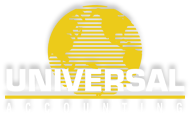Whether you plan to seek professional help or prepare your taxes on your own using free Internal Revenue Service resources, you’ll want to follow specific steps to ensure you get the most accurate refund or payment information possible. This guide can help you do just so.
Do You Have to File Taxes?
Before you start your taxes, remember that you actually have to file taxes this year. With many people’s financial situations in flux throughout the pandemic, there’s a chance that something happened in the past two years that affected your need to file taxes. If you didn’t generate a large enough income or if someone has claimed you as a dependent when filing their taxes, you may not need to at all. But it is worth it to file just in case—you could wind up with a tax break or find out you qualify for tax credits you weren’t aware of.
What Do You Need to File Your Taxes?
Regardless of how you decide to file your taxes (through a professional, free online service, or by mail), you’ll need to gather a couple of things to get started:
Identifying Information
- Your Social Security number and those of any dependents or spouse if applicable.
- Your adjusted gross income (AGI) from last year’s tax return.
Income Statements and Receipts
- W-2 forms from all employers to show the full amount of annual wages.
- Income receipts for any real estate, property leasing and rental, trusts, partnerships, corporations, and royalties earned.
- Social Security benefits claimed.
- Unemployment benefits received.
- All receipts from your small business or freelance expenses.
- 1099-INT forms to account for any income made from interest during the tax year.
- 1099-R forms to show retirement distributions taken during the year.
- 1099-DIV forms for dividends paid out from investments.
- 1099-C for any canceled or forgiven debt (considered income by the IRS in many situations).
- 1099-G forms for tax credits and refunds offsetting local or state taxes.
- Medical bills that were not reimbursed.
- Expenses for your education or student loan interest.
ACA Forms
- 1095-A forms showing your Affordable Care Act Marketplace Health Insurance statement.
- 8962 forms for recipients of premium tax credits.
Find Out How Much Tax You Owe
The US tax system is progressive. This means that those taxpayers with higher taxable incomes will pay higher federal income tax rates and vice versa for those with lower taxable incomes. How much tax you owe the government is decided by various factors, with the main one being your tax bracket. By adding together all taxable income you’ve received throughout the year, you can determine what tax bracket you are in, and thus the rate at which you will be taxed. Luckily, regardless of your tax bracket, you won’t be taxed at that rate for your whole income.
Determine How You’ll Be Filing
Now is the point that you must consider how you’ll be filing this year’s taxes. There are plenty of reasons to choose one option over another, but some options will be closed off to you depending on when you get around to filing. You cannot file any prior-year tax returns via self-preparation websites; instead, the forms must be printed, signed, and mailed. If you’re preparing taxes from prior years, remember to print a copy of your return; otherwise, you’ll have to order a transcript that varies in information depending upon your request.
It’s worth noting that the IRS only allows taxpayers to file for the current tax year using IRS Free File. If you also need to file a return for a previous year, you’ll need to fill out the applicable online forms. You can pay your tax bill directly on the IRS website or view information to check on the details of your return. To qualify for filing using the IRS Free File program, you’ll need to have less than $72,000 of AGI.
Hire a Tax Preparer
For individuals whose tax situations are a little more complicated due to assets or business ownership, we recommend hiring a tax preparer for their invaluable insight. Or, if you’re feeling particularly confident about your tax preparation abilities, consider taking courses with Universal Accounting and becoming a professional tax preparer.
Choose Between Itemized and Standard Deduction
At the beginning of your tax filing process, you must determine whether you would like to claim whatever the standard deduction would be (for individuals filing in 2020, it was $12,400) or if you will be itemizing your deductions for the year. It is markedly easier to claim the standard deduction and frequently is higher than itemized deductions for the typical filer. That said, if there are specific expenses you can think of that impacted your tax year—uninsured losses, large donations to qualified charities, considerable out-of-pocket medical, dental, or vision expenses—itemizing your deductions may be the way to go to ensure you’re getting the most significant benefit or minimizing your tax payment as much as possible.
Filing Your State Taxes
Once you’ve completed all federal tax forms for the year, remember to file a return for your state taxes too. The majority of states require you to file a separate tax return for state taxes, and it’s best to get that done while you take care of your federal one. Why? Because certain states tax certain goods and income at different rates than the federal government, and some states have no income tax or tax on certain types of interest or dividends received in a year. For all these reasons and more, it’s best to err on the safe side and submit a separate return every year.
Paying Taxes Owed or Getting Your Refund
If you owe money to the IRS, you can pay with electronic payments, credit or debit cards, checks, wire transfers, even cash. If the amount you’re faced with is a little daunting to pay all at once, you can set up an IRS payment plan (with both short and long-term options available).
However, for those getting a refund, all you have to do is sit tight and wait for the money to come in. Need it to hit a little faster? The only things you can do to ensure your tax refund comes as quickly as possible are to file your return digitally (as paper returns take from six to eight weeks to process) and arrange for your refund to come via direct deposit, a much faster option than by mail.
Learn How to Start Your Own Tax Filing Business
If you’re ready to go from filing your own taxes to opening your business helping others with their tax needs, Universal Accounting is your go-to resource for starting and growing your successful accounting firm. Learn more here.
Share this post: on Twitter on Facebook on Google+




